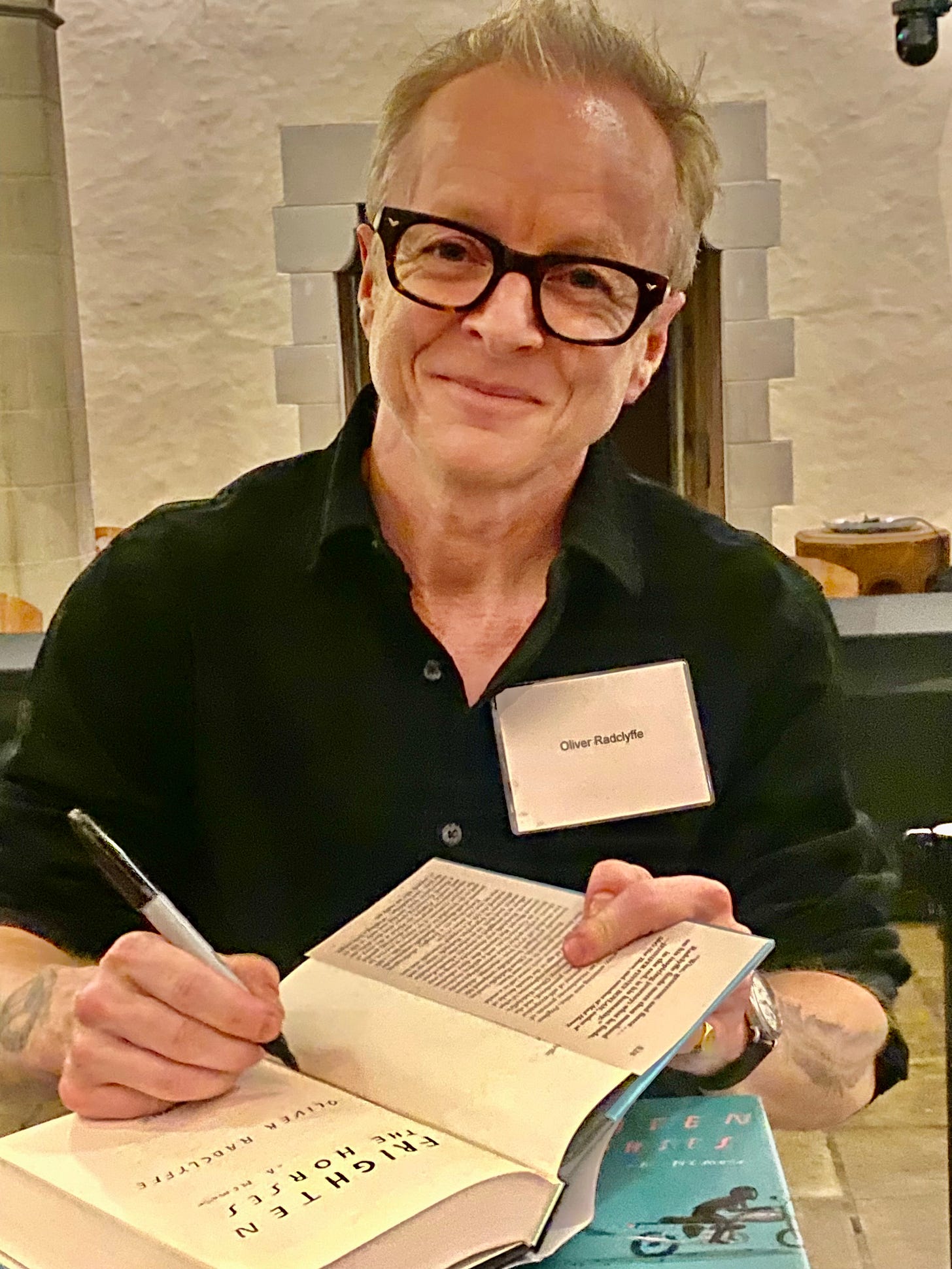I was told—by several people who know what they’re talking about—that publishing a book wouldn’t change my life; that after my memoir was published I’d still be the person I was before, complete with all the same character flaws, hang-ups and neuroses. They were both right and wrong. Yes, I’m the same person I’ve always been, but also I’m slightly different, largely because I know a whole lot of stuff now that I didn’t know before.
I know that it’s true that the fear of something is often greater than the thing itself. My over-active imagination painted a million different scenarios in which publishing a memoir as intimate as mine could go horribly wrong, and none of them happened. My family didn’t disown me, my exes didn’t hate-bomb me, the transphobic mob didn’t come after me, and I didn’t get James-Freyed, a particularly acute anxiety of mine despite the fact that I had rigorously checked my manuscript for honesty and truth-telling at least a hundred times. My fears about my kids reading the book also turned out to be misplaced - they were almost completely disinterested in the whole business beyond wanting to know if I’d ever be able to introduce them to any celebrities. Specifically, my daughter wanted to know whether if my editor was Roxane Gay, and Roxane Gay was writing a romance novel with Channing Tatum, and Channing Tatum was engaged to Zoe Kravitz, there might be a world in which she and Zoe could be besties? Publishing a book is hard, but bursting your child’s dream-scenario bubble is harder.
I know that I love going to events and parties but hate organizing them, and that includes book launches. The pressure! Being ‘on hold’ at various different bookstores, none of which want to commit in case someone better comes along! It’s like your worst middle-school nightmare! And then once the venue’s been booked, what if nobody turns up? What if Kate Bornstein, the guest of honor, gets sick and can’t come? What if I get sick and can’t come? The euphoria I felt at the end of my book launch might have been because it was absolutely one of the best nights of my life, but it might also have been because in the end, thankfully, nothing went awry.
I know I will always be able to write. Every time I stare at a blank page and think, I can’t do this, the words eventually appear. I managed to publish not only two books in two years, but I also placed five essays in the run up to publication: in The Los Angeles Times, Literary Hub, PRINT Magazine, Them and The Gay and Lesbian Review. Plus I’ve recently started working on a novel. I have no idea how to write a novel, but then I had no idea how to write a memoir when I began writing Frighten the Horses, so I have to assume I’ll figure it out as I go along.
I know that the most rewarding part of writing a book is the writing part - turning thoughts into words and sentences - but the second most enjoyable thing is getting to meet the people who want to read it. So many people! So many interesting conversations! From an audience of four hundred at the Westport Library to an audience of two at Symposium Books, everyone I met had something interesting to say. Trans people who related to my experience, parents of trans kids with questions about what their children were going through, cis people who wanted to understand what it feels like to be gender-queer, mothers with similar-but-different anxieties about parenting, divorced women with comparably useless ex-husbands, people on the verge of a mid-life crisis who were looking for proof of happiness on the other side. I knew I loved people before I published this book, but I didn’t know quite how much I love-loved them, and I want more of this in my life. More talking, more educating, more collaborating, more people, more community.
I know there is a black-hole moment as the book tour winds down that I wished someone had warned me about before I fell into it. It’s when the buzz of the pre-publication press begins to fade, but the people who’ve bought the book haven’t started reading it yet. It feels like utter, deathly silence. You suddenly realize that you have no idea whether anyone is buying your book, or if they have whether they’ll like it, or if they do whether they’ll recommend it to their friends. No matter how much press you get, if it doesn’t translate into book sales, what’s it all for? And just as you think you’re hitting rock bottom and it’s all been for nothing and your book is going to sink without a trace, you get an email from a reader. And then another one. And then another. You breathe a sigh of relief. People are reading your book. It wasn’t all a complete waste of time.
I know that I’m glad I ignored everyone’s advice to stay away from Goodreads. Getting great blurbs from other writers was wonderful - albeit possibly bad for my ego - but there’s something about reading enthusiastic words about your work from a complete stranger that hits in an entirely different way. I wanted to reach real, ordinary people with my book, and Goodreads is about as un-elitist as you can get. These readers aren’t writing reviews for me, they’re writing for each other, so there’s no pandering. They show me that my book is landing right, and after so many years of writing without knowing how this book would be received, that’s a big relief. The only bad review I’ve had on Goodreads so far was from someone who was disappointed there were no horses in the book. They gave me zero stars, which seems fair, tbh.
I also know that publishing a book with Roxane Gay and Grove Atlantic opens doors. Not big ones—the doors to Terri Gross’s recording studio and Reece’s book club aren’t magically swinging open—but little ones into places full of people who want to collaborate and share and discuss ideas. In particular it’s given me access to other writers, and whatever anyone says about the publishing industry, the support and generosity and kindness of the writers I’ve met on this journey has blown my mind. This is a community I want to belong to, and I'm extremely grateful to have been granted access to it.
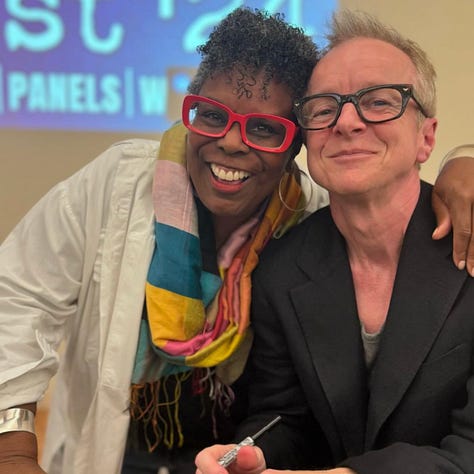
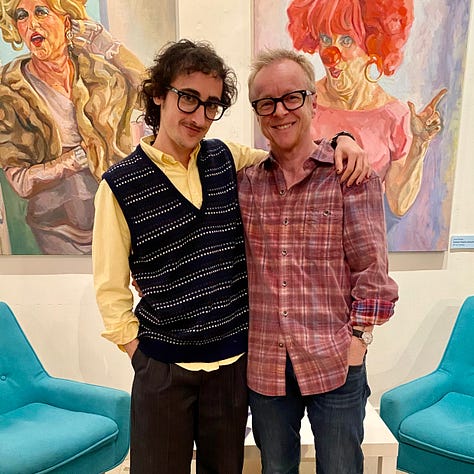
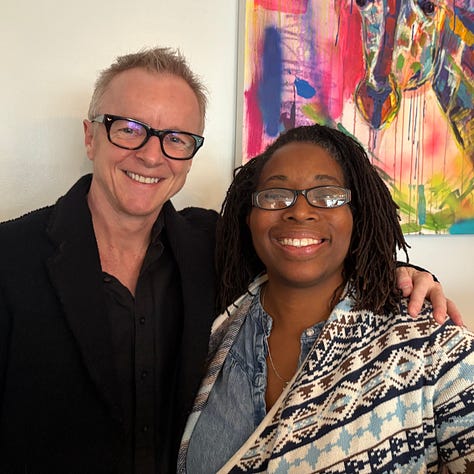
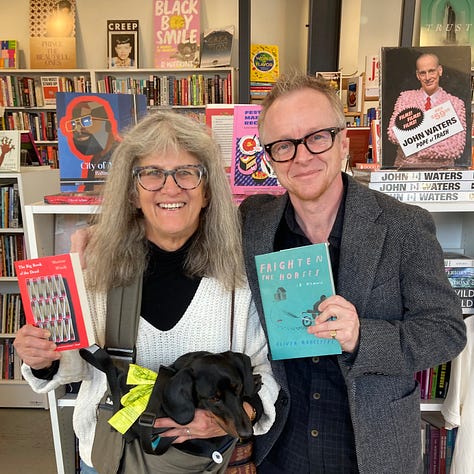
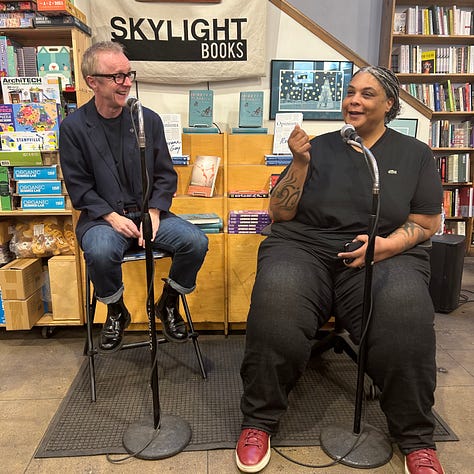
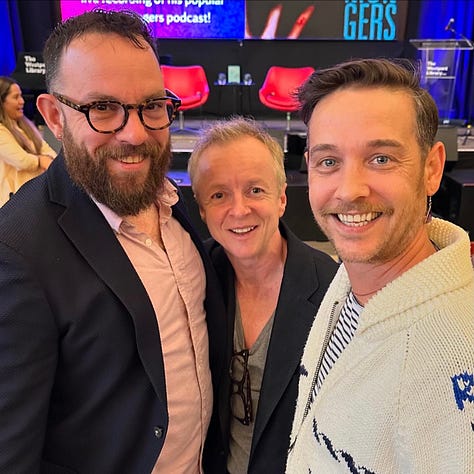
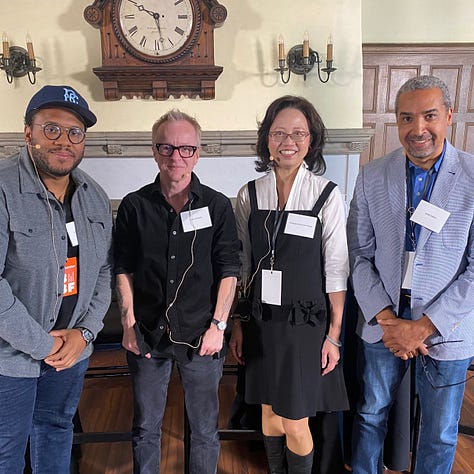
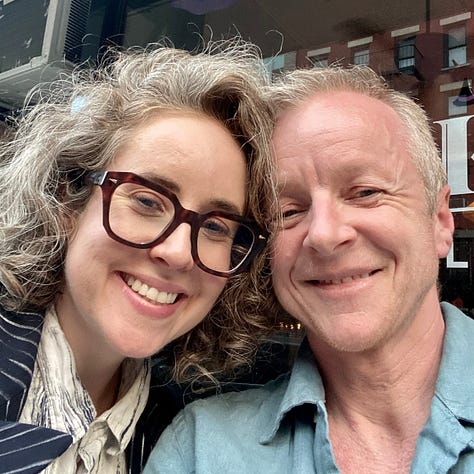
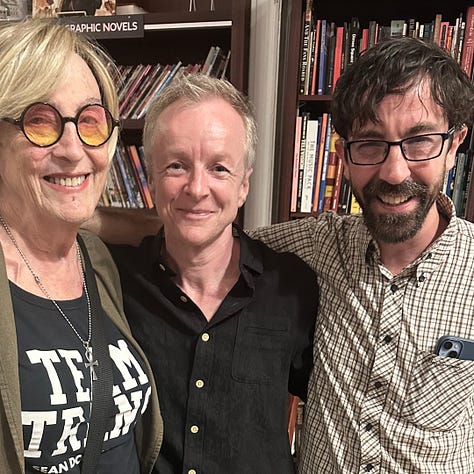
I know I’ll never write memoir again. Memoir is hard to sell and it’s hell on the nerves. Making yourself vulnerable is all well and good, but bloody hell this was a lot of exposure. The toughest review I had to read was by another trans writer who called me sexist in the New York Times. I was sexist when the book began, that was half the point of the story - overcoming my narrow binary thinking to recognize my own internalized misogyny and transphobia. But the mirror that gets held up to you when you publish a memoir is sometimes hard to look into. Fiction from now on: let imaginary characters fuck-up and be vulnerable and difficult and complicated. I think I’ve paid my dues.
Finally, I know that my book can never do what I ultimately want it to. One trans memoir isn’t going go end transphobia. It’s not going to make the world safer for trans people. It’s not going to stop the incoming government from trying to erase us, and it’s not going to give trans kids access to gender-affirming care. But when we talk about the butterfly effect, we always think about the tiny action of a butterfly in the past, and never stop to consider the consequences our own small actions today might have in the years to come. So all I can do is pray is that this book is one beat of a butterfly’s wing, and that if enough of us beat our wings together here in the present, future generations might get to enjoy the results of our labor.
Love, Oliver
FRIGHTEN THE HORSES—an Oprah Daily Best Book of Fall—is out now with Roxane Gay Books. A valuable alternative narrative to the loss and pain that queer history has too often insisted on — New York Times; It’s the voice that makes this memoir stand out. This is a writer who can capture any moment with a dazzling, insightful, at times musical phrase — Oprah Daily; This book is sharp as razors, but it also pulses with a passionate, desperate, human urgency for truth and liberation — Elizabeth Gilbert; The finest literary telling of the experience of gender transition that I’ve ever read — Kate Bornstein. You can order the book here:






